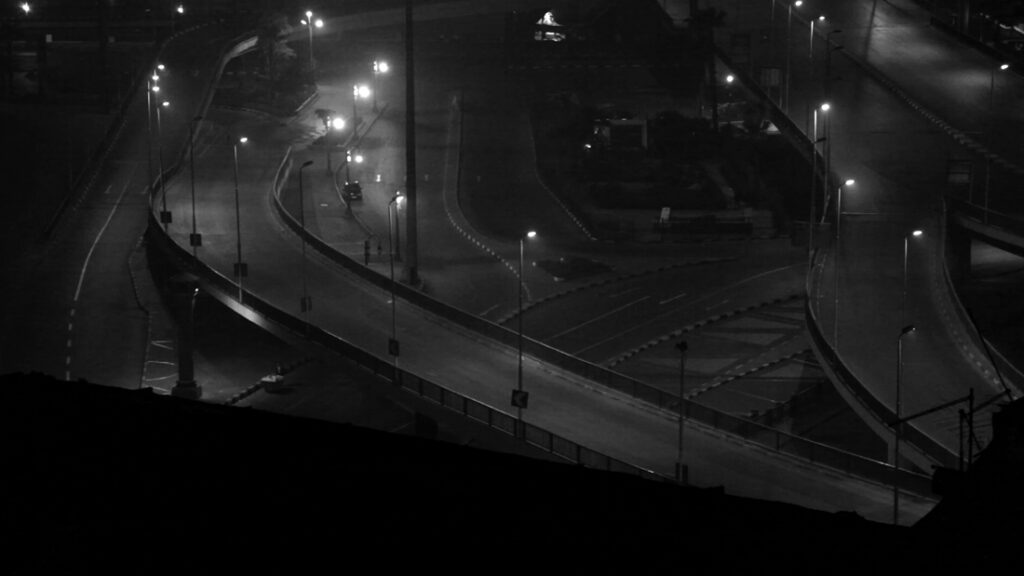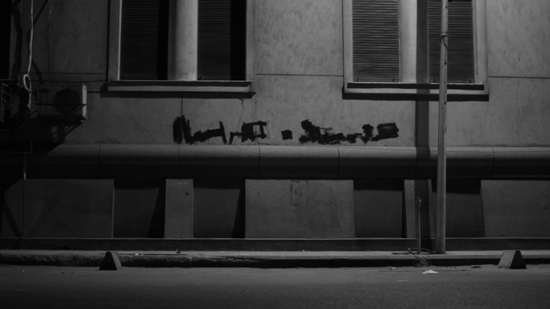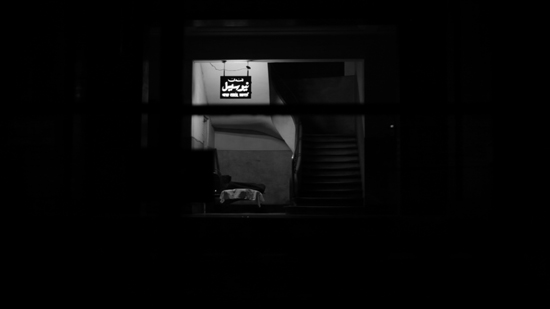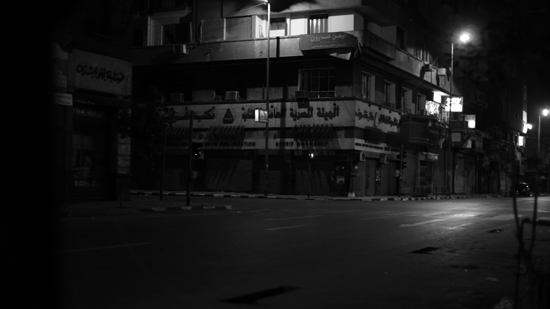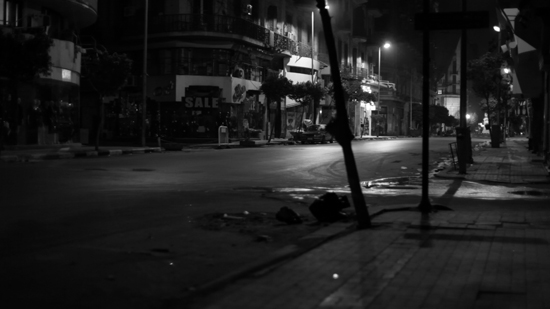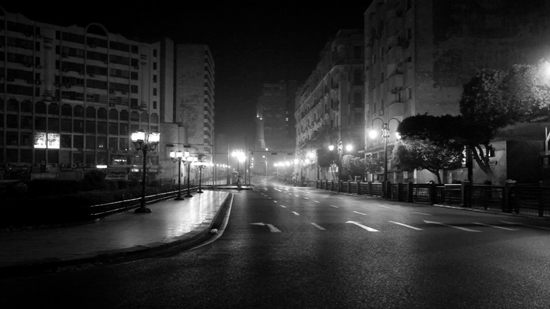EXCURSIONS IN THE DARK
2011, HD video, 20 min.
Director, Script, Editor, Voice-Over: Kaya Behkalam
Selected Screenings: IDFA Amsterdam, European Media Art Festival Osnabrück (Winner of the Dialogue Award), Museum Folkwang Essen, Museum für Fotografie Braunschweig
“Excursions in the dark” is a visual study of the empty streets of post-revolutionary Cairo after midnight, accompanied by an associative narrative; it is an attempt to trace the unconscious connections between the city’s architecture, collective dreamscapes and political agency.
One day after Egyptian president Hosni Mubarak left Cairo, I arrived in the city. In the following nights I went out to film the empty streets after mid- night. I concentrated on the Downtown area, a colonial residue from the mid 19th century. This is where I lived and where most of the political turmoil had happened and was still happening. The ruling military council had ordered a curfew on this area, starting at midnight and ending at five o’clock in the morning. In these nights, in this restrictive state of exception, the city was covered in a quietness, a lack of movement that I doubt Cairo has ever known before. This sudden, almost absolute absence of people in the streets brought other otherwise unseen actors into the foreground: the architecture, the lightning, graffiti on walls, the residues of daytime. A space waiting to be filled, in a “standby” status resembling a theatrical stage after closing hours, our maybe just before the curtain rises.
What was it waiting to be filled with? The absent actors were negotiating the form of a post-revolutionary society during daytime on these streets and places. At night they were lying in bed, their subconscious taking over. During the day I went out asking people in the neighbourhood about the dreams they had the night before, when I was filming in the street. I was interested in the things that lie on the threshold between conscious and subconscious. Things that are less definite than the spoken word, not fixed in shape and form as a photography but still for a certain time on the border of sleep determining our reality. I accumulated a growing collection of dream- memories shedding a light on collectively unspoken desires and fears, eager to find access to the deposit of unsorted ideas, from which this society in the making could draw on.
A young writer who I asked for his nightly dreams told me: “Usually at night our unconscious is controlled and haunted by daily life. Now, after the revolution, it’s the other way around: we direct our daily life by enacting our unconscious.”
